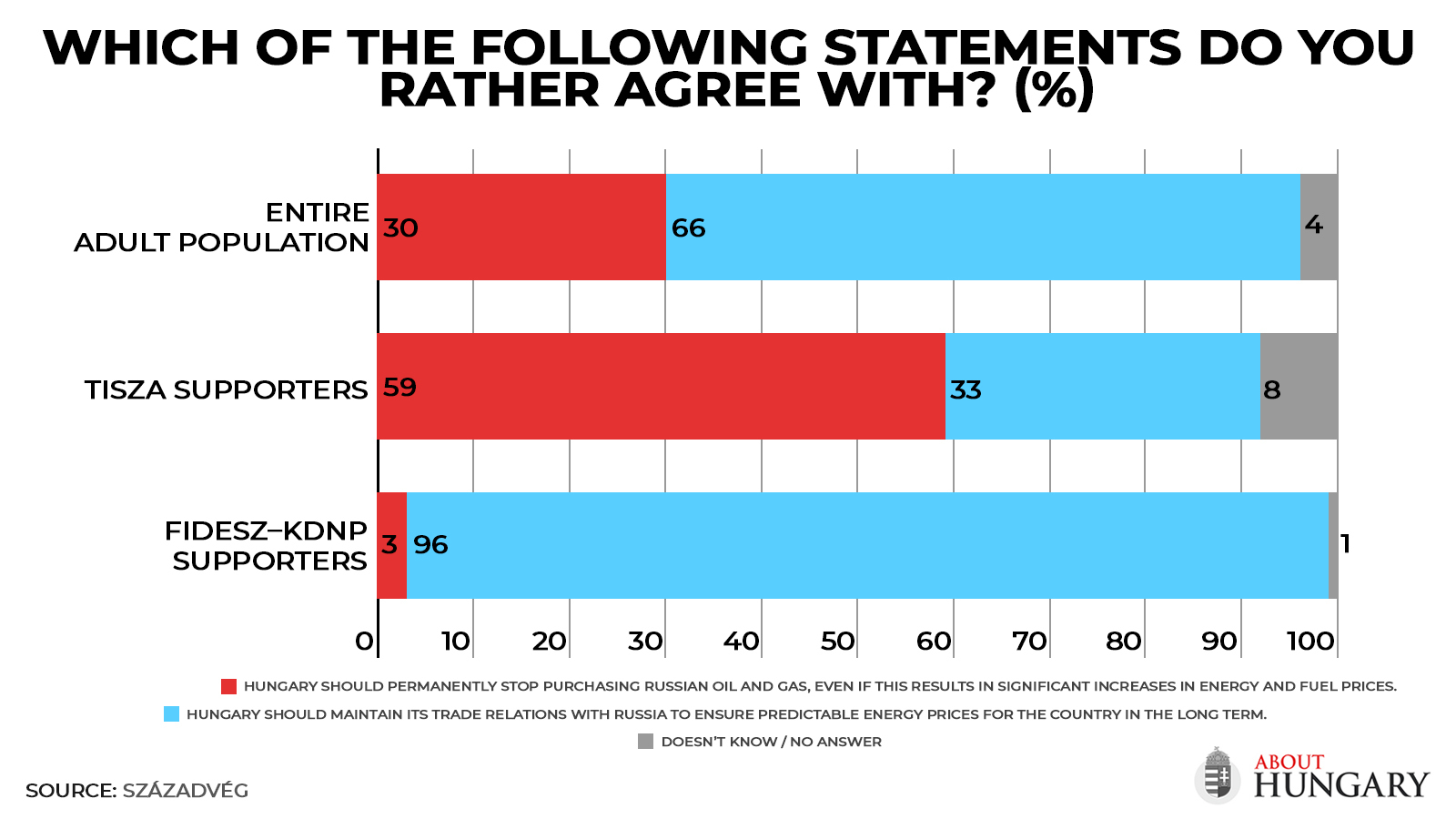According to the Századvég Institute’s recent polling data, 66 percent of Hungarian adults reject the proposed embargo on Russian energy sources. The primary concern is the financial toll such a move would take on families. Projections indicate that cutting off Russian gas could more than triple household utility bills, while restrictions on Russian oil could push fuel prices above HUF 1000 per liter. The consequences would be devastating for many: over one million Hungarian households could face financial insolvency. Beyond personal finances, the resulting energy price surge would also drive up consumer prices across the board, contributing to an additional 9.7 percent inflation over the coming years.
Yet, for Tisza Party supporters, ideology appears to override these practical concerns. The party’s leader, Péter Magyar, announced that the embargo would be formally integrated into Tisza’s political platform. This decision comes despite the fact that a significant share of his own base—41 percent—either opposes the ban or has reservations. Nevertheless, 59 percent of Tisza sympathizers still support the energy embargo, even if it results in severe price hikes.
In sharp contrast, 96 percent of Fidesz–KDNP voters reject the embargo outright. This overwhelming consensus reflects a more pragmatic approach, prioritizing affordable energy and stable supply chains over ideological alignment with EU policy. It also mirrors the broader national sentiment: most Hungarians continue to favor maintaining commercial ties with Russia, especially in critical sectors like energy.

